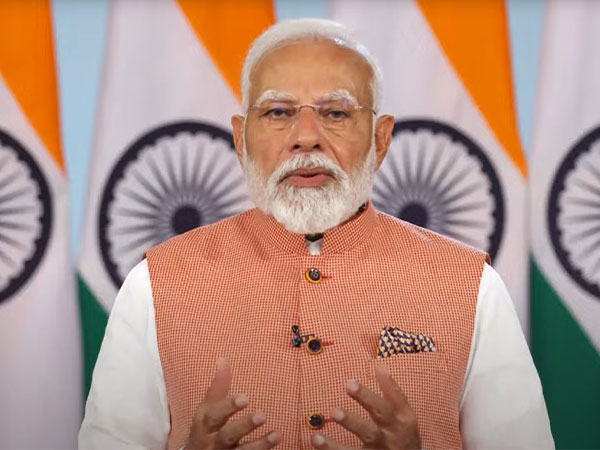
The Prime Minister will unveil India's comprehensive energy plan on Tuesday, 2025, emphasizing the importance of the next two decades in driving the country's development.
The Prime Minister stated, "The upcoming two decades are of extreme importance for India, and over the next five years, we are poised to accomplish numerous significant objectives. Many of our objectives are in line with the 2030 target. By 2030, we intend to add 500 GW of renewable energy capacity."
He noted, "The Indian Railways has established a goal of achieving Net Zero carbon emissions by 2030. Furthermore, we aim to manufacture 5 million metric tons of green hydrogen per year by 2030."
India has become the world's third-largest country for generating solar power, with its capacity to produce non-fossil fuel energy increasing to three times the original amount over the years.
The Prime Minister emphasized, "Today, India is the world's third-largest producer of solar power. Our capacity to generate energy from non-fossil fuels has tripled. At present, India has successfully achieved a 19% blending of ethanol, and we are on track to implement a 20% ethanol mandate by October 2025."
Modi also underscored the swift expansion of India's biofuel industry, backed by a sustainable feedstock of 500 million metric tons.
He pointed out, "India's biofuel industry is on the verge of rapid expansion, driven by a sustainable 500 million metric tons of feedstock. During India's G20 leadership, the Global Biofuel Alliance was formed and is now expanding. To date, 28 countries and 12 international organizations have joined this effort, which is turning waste into value and establishing centers of excellence."
India is continually implementing reforms to optimize its hydrocarbon resources, resulting in significant discoveries and a substantial expansion of gas infrastructure.
said.
Modi emphasized that global specialists acknowledge the 21st century as India's century, with the country having a significant impact not only on its own development but also on the global economy.
He said, "One, abundant resources that we are utilising efficiently; second, encouraging innovation by tapping into the country's talented minds; third, a strong economic foundation and political stability, allowing for long-term investments; fourth, a strategic geographical location, which boosts India's role in global energy trade; fifth, a commitment to global sustainability, creating new opportunities in India's energy sector."
Modi emphasized that India's energy transition is a global turning point, not just a national endeavour. He stated, "India's energy transition is not just a national endeavour--it is shaping the future of global energy dynamics." (ANI)
